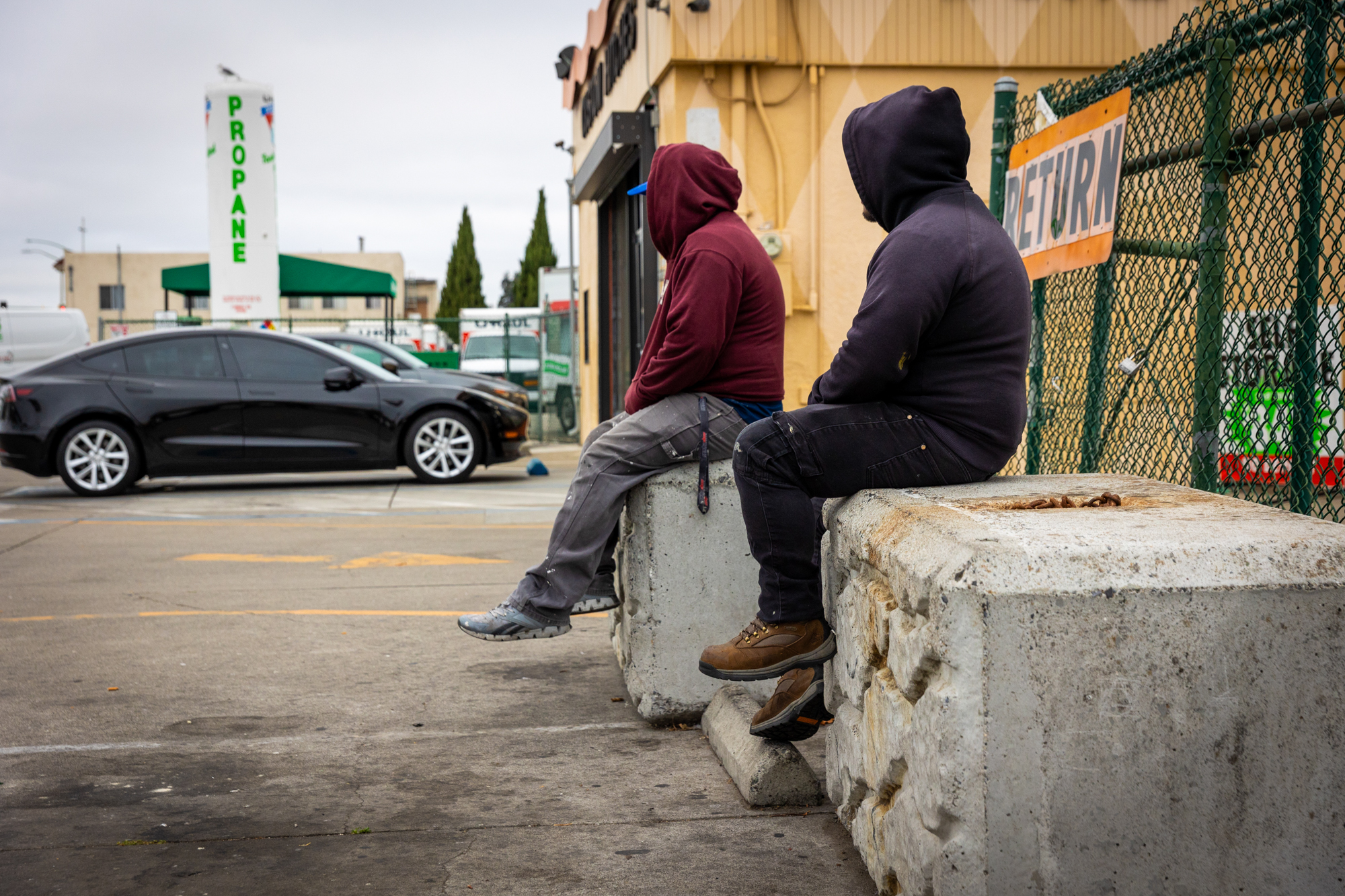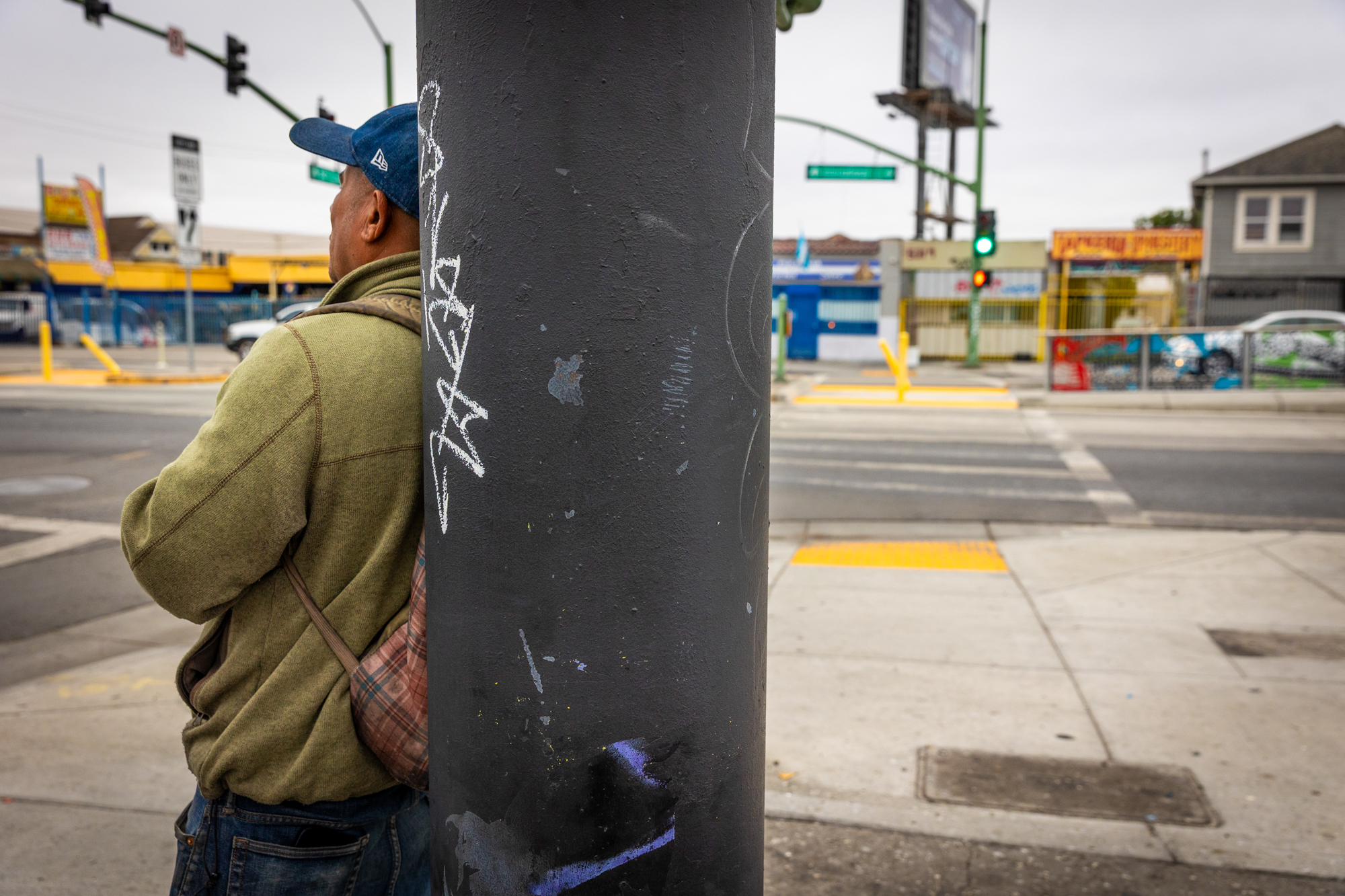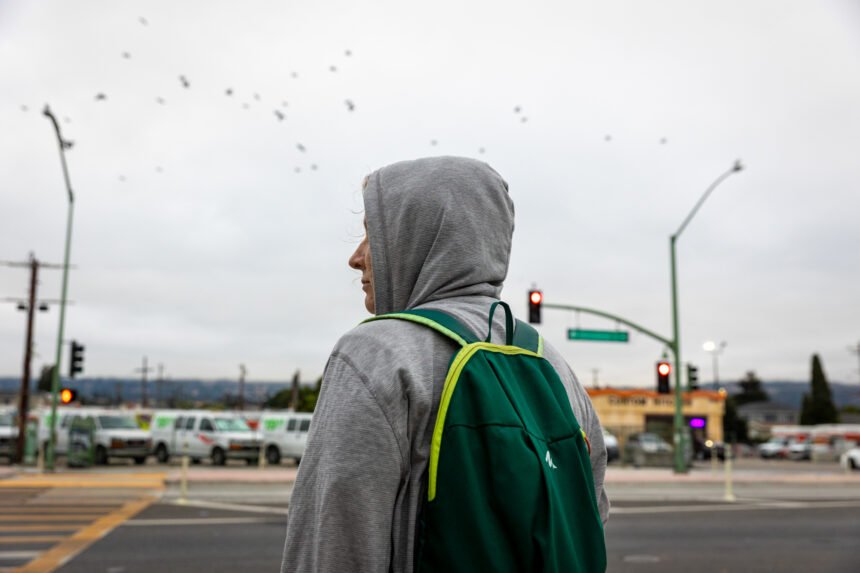Agents briefly drove Hernandez Viramontes away from his longtime carwash job in Orange County and pushed Gavidia against a metal fence, twisting his arm near a Los Angeles County tow yard, even though both men said they were Americans and offered an ID, according to the complaint.
Each morning in California, tens of thousands of mostly Latino men gather at busy intersections and retail store parking lots to await short-term jobs in construction, painting, landscaping and other projects. Day laborers, often low-income undocumented immigrants, are particularly exposed to ICE at the open-air hiring sites, said Palmira Figueroa, NDLON’s communication director.
For years, the organization encouraged employers, neighbors and others to get to know the workers, bring them coffee and establish relationships. But the summer sweeps in LA galvanized about 2,500 people nationwide to take NDLON’s training to adopt a corner, she said. Now, volunteers are monitoring dozens of corners in the state, Figueroa added.
On Christy’s first morning with fellow volunteer Wendy at the U-Haul parking lot, a trainer explained their main responsibilities over the roar of traffic.

“Your position is more as a watch out. We want you to be very aware of your surroundings and very vigilant,” Steve Robles, with the local nonprofit Street Level Health Project, told them.
Christy and Wendy looked around at the busy intersection. At 7:45 a.m., parents hurried by with children in tow and people hopped onto buses to work. In the Bay Area, most recent immigration arrests have taken place at courthouses and ICE offices, according to immigrant advocates.
Still, if immigration agents showed up in this heavily Latino area, Robles said, the volunteers should quickly call a number that connects them to a network of advocates to sound the alarm.

The women should also be ready to whip out their phones and document what happens next.
“These raids are happening in maybe five minutes,” Robles said. “This is why this kind of project was needed, because by the time that the news would come around and our team would come out … they would be gone.”
Julio, a day laborer originally from Honduras who declined to use his full name because of his immigration status, kept a watchful eye on approaching vehicles, trying to assess whether they held potential employers or immigration agents. He said he feels at greater risk of deportation and likes having the volunteers around.







